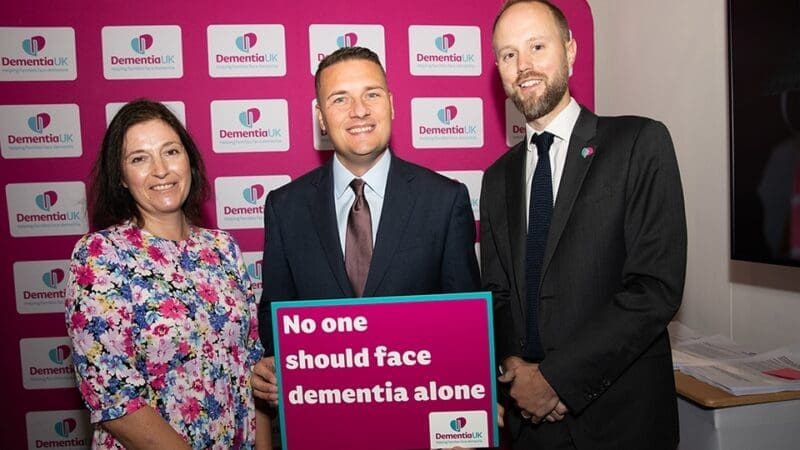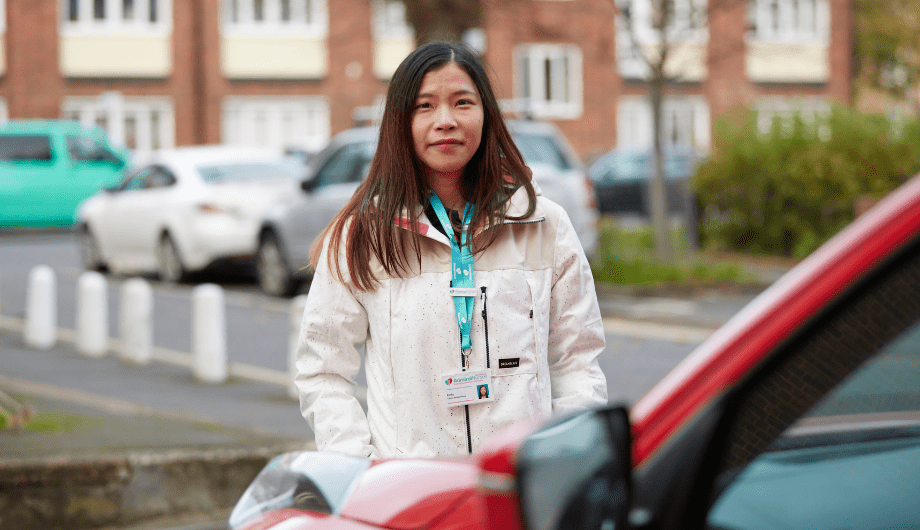
Putting dementia on the agenda at the 2024 party conferences
Our Policy and Public Affairs Manager, Faradane O’Callaghan, reflects on this year’s political party conferences and the progress we have made in the first 100 days of this Government.
Dr Julia Botsford, a specialist in the area of dementia in ethnic minority communities, shares the questions and issues that cultural and ethnic differences can raise when creating support services for people affected by dementia.
At the time of writing the book, I worked for Dementia UK in research and evaluation, supporting specialist Admiral Nurses across the country working with people living with dementia and their families. Prior to that, before I retired from the NHS, I was working as an Admiral Nurse myself in north London.
Because it was a multicultural area, I developed an interest in working across ethnicities, and I was given the opportunity to study for a doctorate on the experience of families, and specifically partners, of people living with dementia.
I looked particularly at African Caribbean and Greek Cypriot families who were going through those experiences – and that led on to me being in a position to produce the book.
It is, but it’s improving – certainly, when I started my doctorate in 2007 there was little published in the UK about the topic, and a lot of it was anecdotal, just people talking about the difficulties they were experiencing.
The issue of dementia, in general, has become much more high profile since then though, and there’s much more awareness. Within that, I think there’s increasing acknowledgement that people’s experiences of dementia will be impacted on by their culture and ethnicity, coupled with the fact that there is a growing population of older people in the UK from different backgrounds. That has led to a sense that something that needs to happen around addressing possible differences in need.
It’s quite eclectic, with sections that would be accessible for people who are researchers, people working in the area and those generally interested in ethnicity issues or dementia.
There are sections where we talked to family carers from a range of different backgrounds who described their own experiences on a personal level. Along with that, we included a lot of information about associated statistics and practical sections, such as working with interpreters, for example.
And there are also examples in the book of where health and social care professionals and those in the voluntary sector have developed specific projects to promote awareness or positive ways of engaging with people from specific communities – and give their reflections on what worked well and what to think about for other people to learn from.
Mainstream services have grown out of what currently exists – and because of the nature of dementia, which tends to affect people as they grow older, and the result of migration patterns from the 1960s on, there have historically been fewer older people from minority ethnicities in the UK.
There is a projected eight-fold increase in the number of people from black and minority communities developing dementia between now and 2051, though, with only a two-fold increase generally in people with dementia from all backgrounds. This obviously has implications for policy and the way services are delivered, and it’s an issue that’s going to become more and more relevant as the next generations age.
Whatever background you come from, the experience of dementia is going to be individual, and in that respect, it’s crucial to understand that there’s not a difference between being in a minority ethnicity and being in a non-minority ethnicity. Even within a minority ethnicity, there are significant differences too, and we’re quite crude in the way we group together certain communities.
I would say, though, that there is evidence of potentially different prevalence rates for different types of dementia in South Asian and Caribbean communities. We don’t quite know why that would be, but issues such as higher rates of diabetes and high blood pressure are likely to be a part of that.
There can also be a difference in attitudes, and evidence that some minority communities tend to access services later – or not at all. And finally there can be issues about how people perceive the symptoms of dementia in some communities, so they may view dementia as just being part of ‘normal ageing’.
It’s well documented, for example, that some South Asian groups don’t even have a word for dementia in their language. There could also be a stigma and a sense of shame leading to not wanting to let people know what’s happening. I’ve been told that in some cases, people feel uncomfortable talking about it because they are concerned that it might affect the marriage prospects of people in the family.
On an individual level, if you’re a first-generation immigrant, whose younger life was in rural India, for example, and you develop dementia in old age your cultural reference points are likely to be very different to the ones in your immediate surroundings.
There’s an example in the book where somebody is talking about their mother-in-law whose family took her to live in their home when she developed dementia. They understood that when she spat out her grape seeds she was not seeing the carpet but the mud floor of her earlier home.
We also need to consider the issue of language – children who have been to school in this country don’t necessarily speak the original language of the familial person who came here in the first place. So the older person with dementia may not actually even speak the same language as the people around them, which is another challenging dimension that we forget.
There’s an idea of ‘cultural competence’ in dementia services, where professionals are aware of their own identity and how they might be perceived, but come with an open mind to whoever they come into contact with. It is definitely useful to know key aspects of particular cultures, but it’s more important to be open to the individual, basically.
Increasing numbers of courses on dementia address this and the reality is if you’re working in a person-centred way, which is what most dementia services aim to do, it will always include taking into account the culture of the people that you’re working with. We do need to do more on this though.
One of the things that I’m conscious of at the moment is that if organisations know the kinds of cultural backgrounds of the individuals who they’re potentially going to be providing services to then they will be able to discover and monitor how well they are reaching those communities.
It certainly appears some communities are less likely to access services, as I mentioned, and if they do, then it’s later on, perhaps when they are in crisis. At the policy level, we should be addressing these needs and certainly reach out to communities to avoid this.
That’s one way, although again, it’s a multi-layered issue. One of the things I wrote about in the book is the challenge of being an ‘insider’ or an ‘outsider’. Nursing in the UK is quite a multicultural community in itself, but you might find that, for example, a carer or a nurse might be from one minority community while the care recipient might be from a different community.
They’re both perhaps a minority but not the same. And even if they’re from the same area, let’s say, do we know that they’re from the same religious background, for example? And what does that mean if they’re not?
Acknowledging the nuances of ethnicity and culture and the issues that come with these is crucial to creating the right kind of support for people. The answer is not about the lumping together of BAME, which often happens – we shortcut by making it a dichotomy between majority and minority, which is far too simplistic.
This article was originally published on the Elder website

Our Policy and Public Affairs Manager, Faradane O’Callaghan, reflects on this year’s political party conferences and the progress we have made in the first 100 days of this Government.

With more people in the UK dying of dementia than any other condition, our Head of Policy, Campaigns and Public Affairs, Andrew Pike, reflects on why we must all work together to ensure that every family affected receives the support it needs.

Two years ago, Dementia UK partnered with the Chinese Welfare Trust to launch a new dementia specialist Admiral Nurse clinic to support Chinese and South-East Asian families. Admiral Nurse Emily Ka-Hei Lui reflects on the pilot service and its early achievements.